
What are the advantages and disadvantages of having no mechanical shutter?
Mechanical shutters tend to have a faster scan speed than electronic shutters, and this means that rolling shutter distortion can be suppressed. On the flip side, electronic shutters have the advantage of having no moving parts, there is no limit for the life of the shutter, they are able to maintain more accurate shutter speeds, and there is no sound or vibration. However, the adaptation of a stacked CMOS sensor for the Z 8 enables a high-speed scan rate, eliminating rolling shutter distortion, so it has the advantage of both a mechanical and electronic shutter.
Will this be adopted in future lower-cost Z-series cameras – such as DX models?
The shutter-less mechanism used for the Z 8 design is combined with the high-speed stacked sensor, so the question is really about what kind of sensor and shutter mechanism can be combined in future products. We will consider this based on the target customer’s needs, for both full-frame and DX products. Wait and see!
Is the Z 8 the natural choice for video?
Yes! I think the Z 8 will be used extensively for 8K shooting, partly due to the ease of use in camera rig assemblies, and also in terms of performance. It has a variety of format options that can be selected according to the video shooting and editing environment of the user, so it is very flexible. ProRes Raw can be recorded internally, same as the Z 9. We believe the demand for lower-cost equipment that can handle pro-standard video will grow.
The D850 is widely considered the best all-round DSLR ever made, is the Z 8 the best all-round mirrorless ever made?
This story is from the {{IssueName}} edition of {{MagazineName}}.
Start your 7-day Magzter GOLD free trial to access thousands of curated premium stories, and 9,000+ magazines and newspapers.
Already a subscriber ? Sign In
This story is from the {{IssueName}} edition of {{MagazineName}}.
Start your 7-day Magzter GOLD free trial to access thousands of curated premium stories, and 9,000+ magazines and newspapers.
Already a subscriber? Sign In
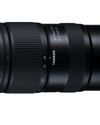
Tamron 28-75mm f/2.8 Di III RXD G2
The original version broke the mould for ‘trinity' standard zooms. The G2 enhances handling and performance further still
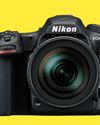
Nikon D500
Nikon's flagship DX-format DSLR is a modern classic. And while it hasn't been out of production for long, it left a hole in Nikon's camera line-up that's never been filled

Laurence Griffiths
With so much sporting action this summer, Laurence Griffiths of Getty Images reveals how to catch every goal at the Euros, details Getty Images' 24/7 Olympics coverage and why he always has a wide-angle ready. Keith Wilson managed to grab him before kick-off...
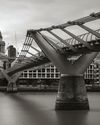
Ghost town
Adam Waring uses ND filters to subdue the hustle and bustle when shooting busy cities

Creative cities
Experienced travel photographer Matt Higgs provides top tips for stunning shots of city sights

If at first you don't succeed...
Tom travels to the other side of the world to have another go at shooting an elusive image and displays the power of his perseverance
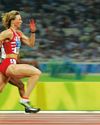
Shoot the summer of sports
Have the Olympics and Euros inspired you to photograph sport? Mike Harris shows you how to score a portfolio of top shots

Osprey & prey
Birds of a feather Gary Jones and Leigh Pugh photograph ospreys from a purpose-built hide
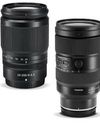
Superzoom lenses
These lenses will have you in for a long stretch, some more than others in the wide-angle to telephoto stakes
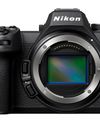
Nikon Z 6III
With a revolutionary 'partially stacked' full-frame sensor, the Z 6III fits flagship camera features in an compact enthusiast-level body